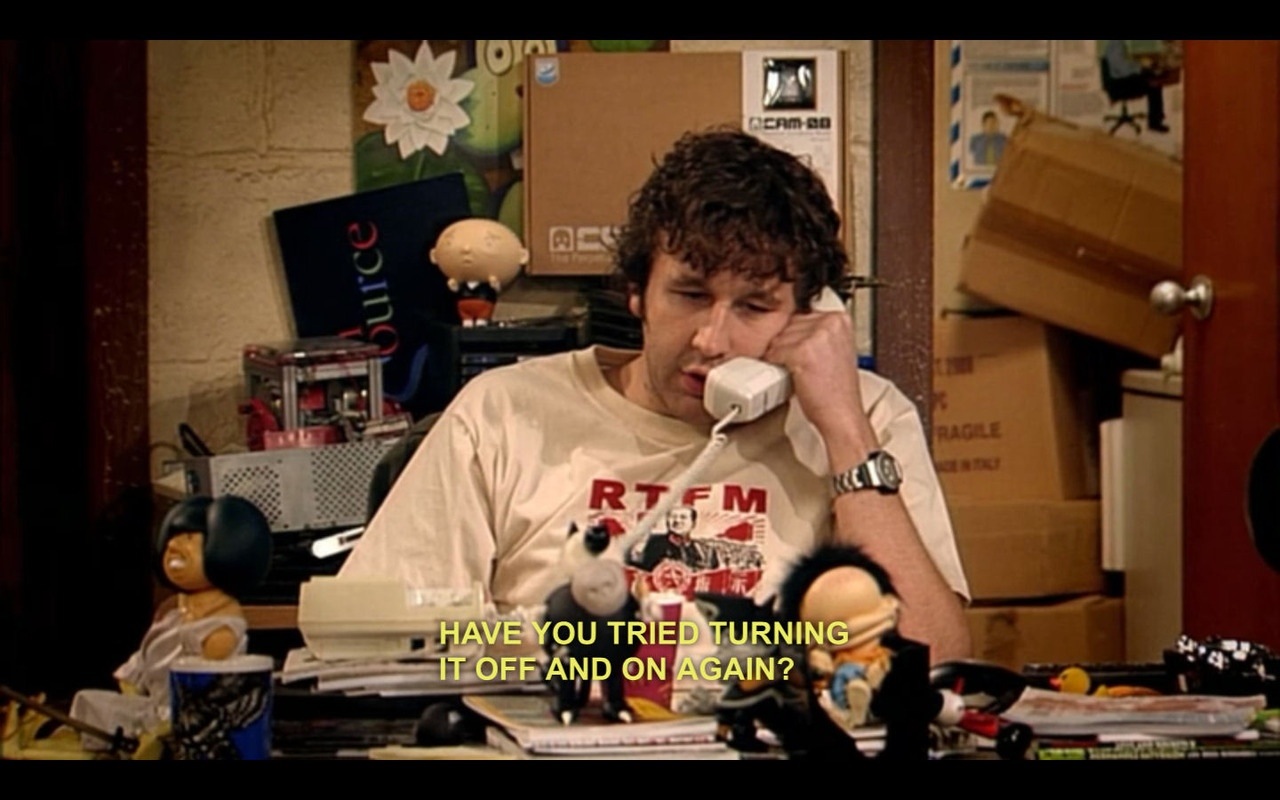“Oh, yeah… YOU’RE WELCOME.” I think most people have dealt with a computer guy like this, but hopefully it’s not your everyday experience. In case you didn’t get the memo, technology is here to stay. As technology advances, so do the ways in which we use and interact with it.
Previously, most companies had someone just like Nick Burns, someone who lurked in the company’s IT dungeon and who lived in their mother’s basement. (Contrary to popular belief, most IT folks don’t like to be kept in dark, damp places.) This person probably had varying capabilities depending on the size of the company and the kind of technology budget they had. But, for a small company he (“he” assuming he was Nick Burns-like) was an individual who was nerdy enough to handle the small network and maybe a few printers. This person was probably intolerable and enjoyed holding their knowledge of technology over others.
Now, since technology plays a major role in most companies, there are now teams of folks available to help you, not just a cave dweller.
In our recognition of technology as a vital tool in the workplace, the advances made in the software and hardware have made technology easier to use for the common consumer rather than more complicated. As a result, most people have a good, general understanding of how their technology works. This also means that they have a greater expectation of how it should work. The “Company Computer Guy” now needs to be much more than that guy who fixes the computers. Now he needs to evole into someone who “works well with others” and maybe even “have a personality” in order to fit in with the many non-geek co-workers. All members of the IT team from the top down need to have fantastic interpersonal skills even when talking interdepartmentally. Most importantly, the help desk personnel’s communication skills need to be paramount since they may have the most interaction with people outside of the IT department.
These communication skills will come naturally to a person who thrives on human interaction. Good communication will result in greater success in their career, especially in the interview process. Hiring managers and IT directors need to look for people who can communicate well, and help those who have been hired that can’t. No one really prefers to have their IT support done remotely by people they aren’t comfortable with.




